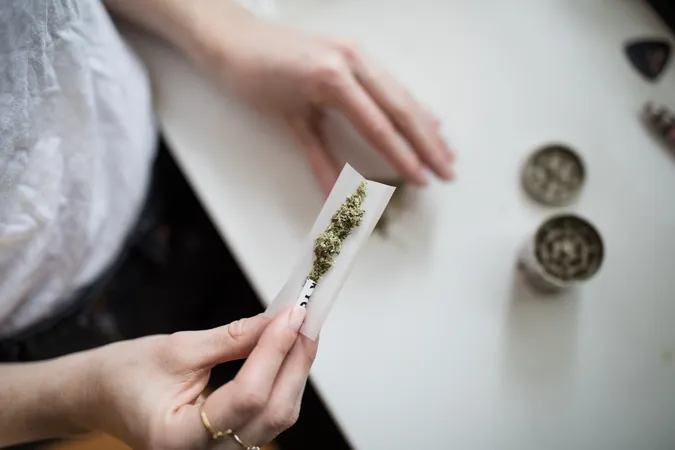
New Study Reveals Alarming Link Between Adolescent Cannabis Use and Psychosis Symptoms
2024-11-24
Author: Li
A groundbreaking study from Washington University in St. Louis has unveiled troubling insights about the relationship between cannabis use and psychosis in adolescents. The research indicates that teenagers who engage in cannabis consumption not only report elevated symptoms associated with psychosis but also experience greater distress stemming from these symptoms. These findings suggest that there are underlying shared vulnerabilities, as well as a pattern of self-medication among young users.
Key Findings
The results highlight a concerning trend: adolescents who use cannabis are 2 to 4 times more likely to develop psychotic disorders compared to their non-using peers. The research emphasizes that the earlier an individual begins using cannabis in their teenage years, the sooner they are likely to experience psychotic symptoms, compounding the severity of their conditions and increasing the chances of relapse.
Rising Cannabis Use Among Adolescents
Cannabis has soared in popularity among young people, with the prevalence of use nearly doubling over the past two decades—jumping from 11% to 22%. Alarmingly, the perception of risk associated with cannabis use has significantly declined. Statistics reveal that the percentage of adolescents viewing weekly cannabis use as problematic has dropped from 36.3% to just 25%.
Theories on the Connection Between Cannabis Use and Psychosis
The debate surrounding the connection between cannabis use and psychosis is ongoing, with several theories emerging to explain this relationship. One such theory, known as the *contributing risk hypothesis*, posits that cannabis use disrupts neurodevelopmental processes during crucial stages of adolescence, leading to psychosis. In contrast, the *shared vulnerability hypothesis* suggests that genetic, environmental, or prenatal factors might predispose individuals to both cannabis use and psychotic symptoms; essentially, these two behaviors arise from the same roots.
Another compelling angle is the *self-medication hypothesis*. This theory suggests that adolescents may resort to cannabis as a way of coping with distressing psychotic symptoms before they officially manifest.
Study Overview
The recent study published in JAMA Psychiatry, titled “Psychosis Spectrum Symptoms Before and After Adolescent Cannabis Use Initiation,” examined a substantial dataset of 11,868 adolescents aged 9 to 10 over four years, tracking their development prior to and following cannabis initiation.
Interestingly, the findings revealed that cannabis initiation did not correlate with a significant increase in psychosis symptoms, challenging the contributing risk hypothesis. However, the study did find that those who had used cannabis reported a higher frequency of psychosis spectrum symptoms than those who never used it, which bolsters the shared vulnerability hypothesis. Moreover, an observable increase in psychotic symptoms and related distress was noted leading up to cannabis initiation, aligning with the self-medication hypothesis.
Conclusion
These poignant insights underscore the importance of understanding the psychological dynamics at play in adolescent cannabis use. With mental health issues on the rise among young people, these findings call for urgent public health discussions and interventions aimed at preventing early cannabis use, as well as addressing the mental health challenges that may precede it.
Stay tuned for more revelations as researchers delve deeper into the complex interplay of adolescent behavior and mental health!




 Brasil (PT)
Brasil (PT)
 Canada (EN)
Canada (EN)
 Chile (ES)
Chile (ES)
 España (ES)
España (ES)
 France (FR)
France (FR)
 Hong Kong (EN)
Hong Kong (EN)
 Italia (IT)
Italia (IT)
 日本 (JA)
日本 (JA)
 Magyarország (HU)
Magyarország (HU)
 Norge (NO)
Norge (NO)
 Polska (PL)
Polska (PL)
 Schweiz (DE)
Schweiz (DE)
 Singapore (EN)
Singapore (EN)
 Sverige (SV)
Sverige (SV)
 Suomi (FI)
Suomi (FI)
 Türkiye (TR)
Türkiye (TR)